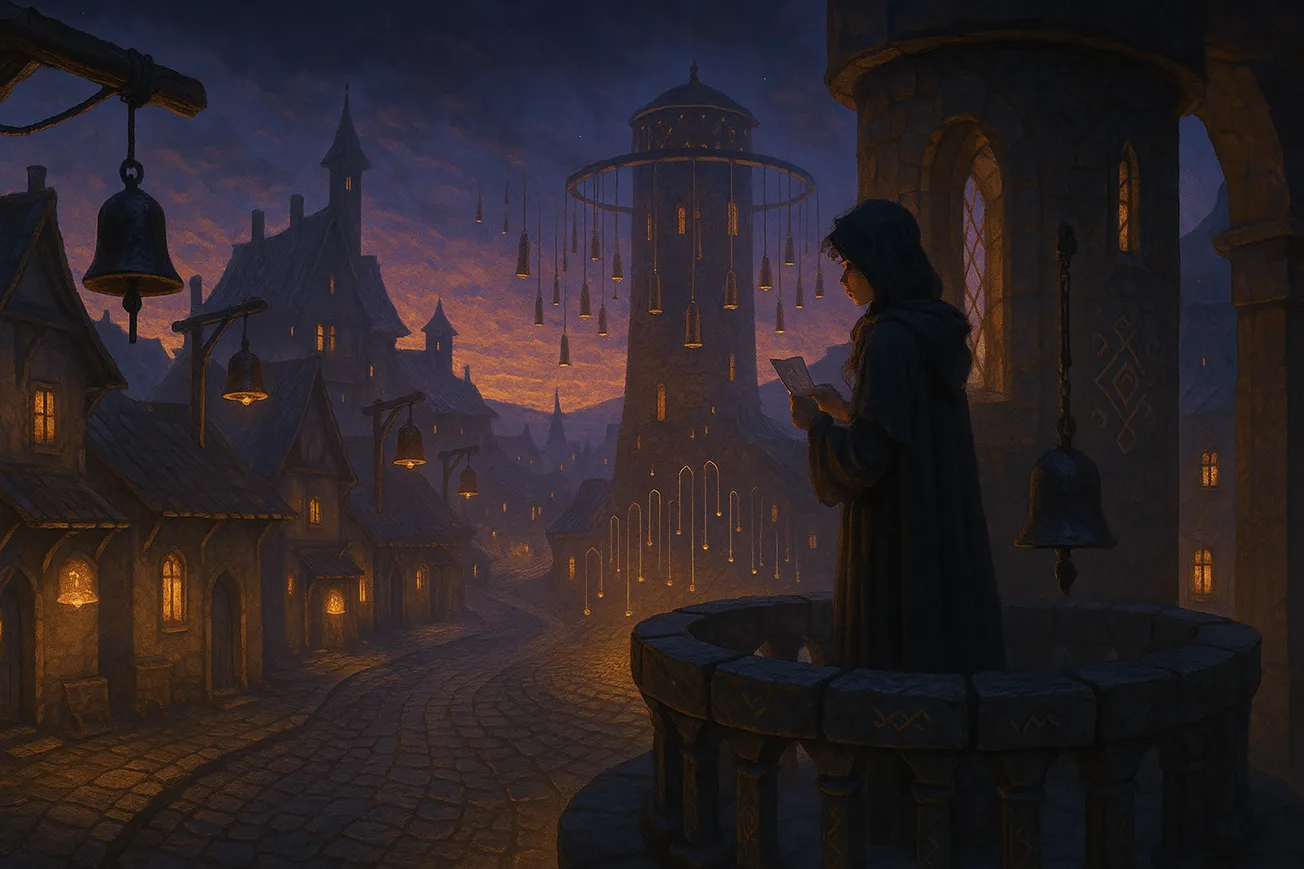🌈 The Fractal Story Engine | Society & Future | (4) SF-001-F2
In the sixth decade of the Amber Cycle, the town of Bellwake began to fray.
It started with the children. At dawn, they would wake with unfamiliar hands or greet their parents as strangers. One boy spent an hour sobbing in the fields because he remembered a sister he did not have. Another claimed to speak a language no one had taught him, a grammar made of wind and stone.
They were not believed at first. Not truly. But suspicion drifted into the soil like ash after lightning.
Every household in Bellwake kept a memory bell. The custom was ancient, but its purpose had grown unclear. Each year, on the eve of the Third Sun, the bells rang themselves. A tone for each person, different in pitch and color, echoing from tower to cellar. It was said the bells were once used to anchor memory, though no one could explain how.
By the time the adults began to forget, it had already gone too far.
Old Ralen was the first to vanish. Not to die, but to vanish. He was seen walking toward the Eastern Hill with a shawl full of books and a name nobody recognized. When his wife went to find him, the house was still there, but the life inside it had disappeared. His chair was gone. His pipe shelf was bare. His coat had never existed.
Within days, twelve others followed.
In the center of Bellwake stood the Atrium of Sound. A stone circle with no roof, only a constellation of suspended chimes. It was here that Lisha, the apothecary’s daughter, heard the note that did not belong. It came not from her bell, nor any of the others. It rang between them, through them, like a hole in the music.
She climbed the tower to trace the vibration. At the top, she found an iron weight unlatched from its anchor. On the inside of the frame was a phrase, etched in a language she half understood.
Memory requires risk.
That year, Lisha refused to cast her memory vote. Every citizen was given a slip, parchment embedded with glimmers of what they had known, and they were meant to choose what to offer and what to keep. The collected slips were burned in the Flamehall where the Recorders inhaled the smoke and became living indexes.
Lisha burned nothing. She kept her slip folded inside her shoe, close to the sole.
The next morning, her father did not know her name.
She walked the full length of the Forgetting River. Through valley thorns and cliffs of moss-stone, into the caves of the old architects. There she met the being called Tern, who wore the skin of a fox and the mind of a library.
Tern offered her a trade: a memory for a map.
She asked what kind of memory.
One that shaped you, Tern said, but not in ways you cherish.
She gave him the day her mother left. The one she had kept buried in her molars. The one that echoed every time someone didn’t come home.
In return, Tern gave her a map made of breath.
Following its contours, Lisha returned to Bellwake with a song stitched into her voice. She sang it into the Atrium of Sound, once for every bell, and a tremor passed through the town like a change in weather. Children stopped waking with strange faces. The elderly began to dream vividly, as if reclaiming lives they had misplaced.
On the next Third Sun, when the bells rang, one did not sound.
It belonged to Lisha.
Some say she vanished. Others say she became a Recorder of a different kind, one who remembers not through smoke, but through resonance.
The bells still ring. And every so often, one will emit a tone no one recognizes. A note from the future or from a life that was never lived, calling the listener to choose again.
Not what to forget.
But what to bear.

